The Russian economy is headed for its deepest recession since 1991. That’s the British government’s latest assessment of whether sanctions are successfully, in the words of Liz Truss, ‘choking Putin’s war machine’.
As the West’s most effective non-military tool for putting pressure on the Kremlin, sanctions have been under the microscope from the beginning: are they working? Are they targeting the right people? Could they actually benefit Putin’s regime?
Indeed, just last month it was reported that Russia had doubled its fossil fuel revenues since February, by some accounts raking in as much as €62 billion (approximately £53 billion), benefiting from global prices driven skywards by the sanction-induced shortages. By the end of March, the rouble seemed to have recovered its pre-war value.
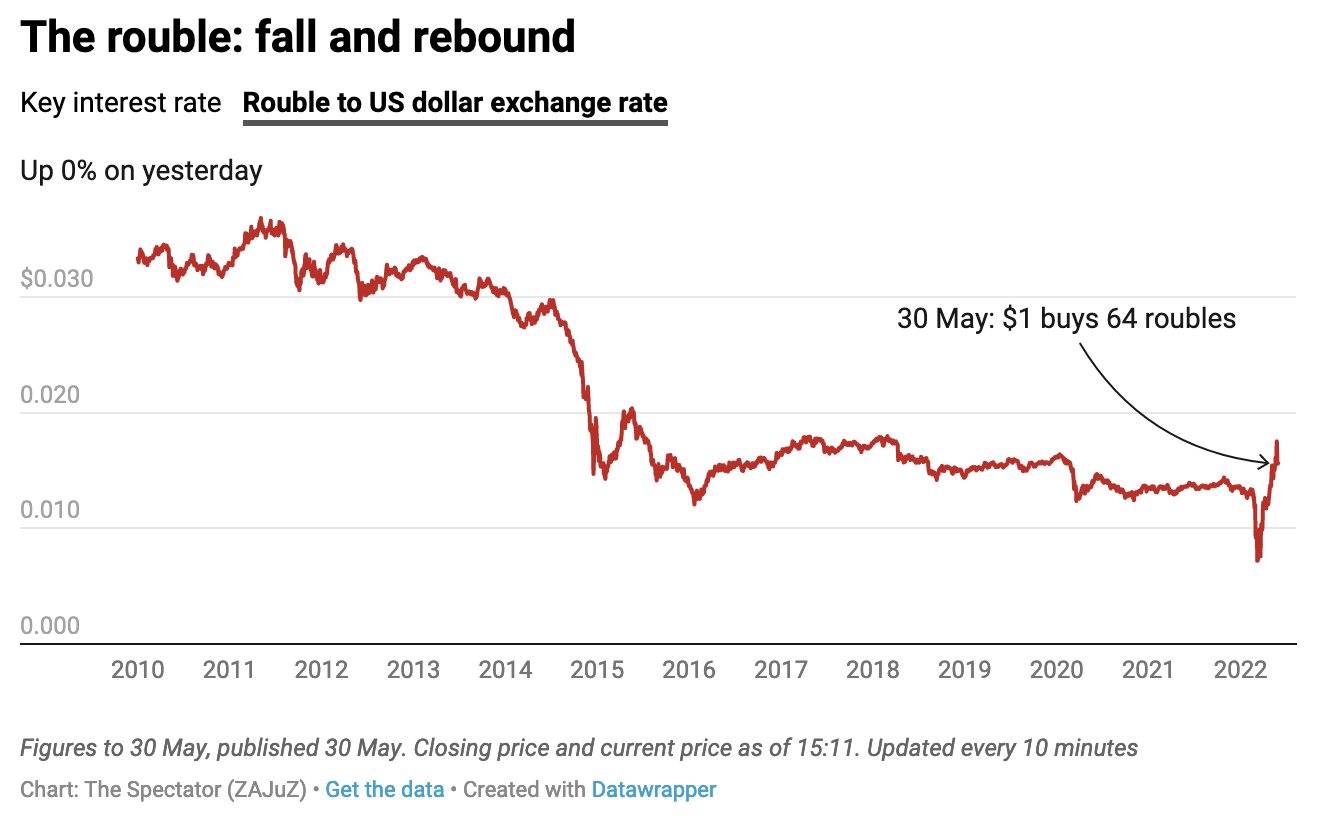
The EU’s most recent round of sanctions has been panned in some corners for only introducing a partial ban on Russian oil. Critics have said they won’t do enough to successfully cut Putin off from his oily money-making lifeline.
So are sanctions working then, or not? Are they the juggernaut the West is so hoping they will be?
The signs on the ground suggest that, yes, sanctions are indeed beginning to bite. According to the Russian media, gold reserves in the country dropped 20 per cent between February and March, reaching their lowest levels since summer 2019, as the central bank buys up gold to stabilise the rouble and fund the war.
More tangibly, new legislation came in on June 1, raising the national minimum wage and pensions by 10 per cent. According to the broadsheet Izvestiya, some Russian banks also have stopped advertising their loan interest rates in response to the high base rate set by the central bank.
Although the papers won’t admit it, both of these measures are clearly a response to soaring inflation and a rise in the cost of living for ordinary Russians. Anecdotally, reports suggest the price of food and other commodities has begun to rise sharply. Unemployment is taking hold.
It seems the Russian government is beginning to realise it is running out of road when it comes to hiding this from the public.
In an extraordinary announcement on May 23, the head of the Russian parliament’s Accounts Chamber, Alexei Kudrin, said the country was entering a second ‘Perestroika’, with at least two years of economic difficulty ahead.
There would be a fall in real disposable incomes and salaries, with unemployment expected to peak in the autumn of this year.
Aptly calling the country’s current predicament a second ‘Perestroika’, Kudrin’s words will have sounded the alarm for Russians, many of whom still remember the harsh economic circumstances the fall of the Soviet Union brought just over thirty years ago.
Even the usually ever-optimistic Kremlin-supporting online paper Pravda sounded spooked, calling Kudrin’s words ‘somewhat frightening’.
It seems the Russian government’s plan is to try and restructure the economy while artificially maintaining living standards in the hope that as few Russians as possible realise the reality of the country’s situation.
The Western powers are continuing to tighten the screws on sanctions – but just how much and how quickly they inflict damage on Russia’s economy remains to be seen. One way or another, though, the Kremlin will not be able to sustain a facade of economic health indefinitely.
Got something to add? Join the discussion and comment below.
Get 10 issues for just $10
Subscribe to The Spectator Australia today for the next 10 magazine issues, plus full online access, for just $10.

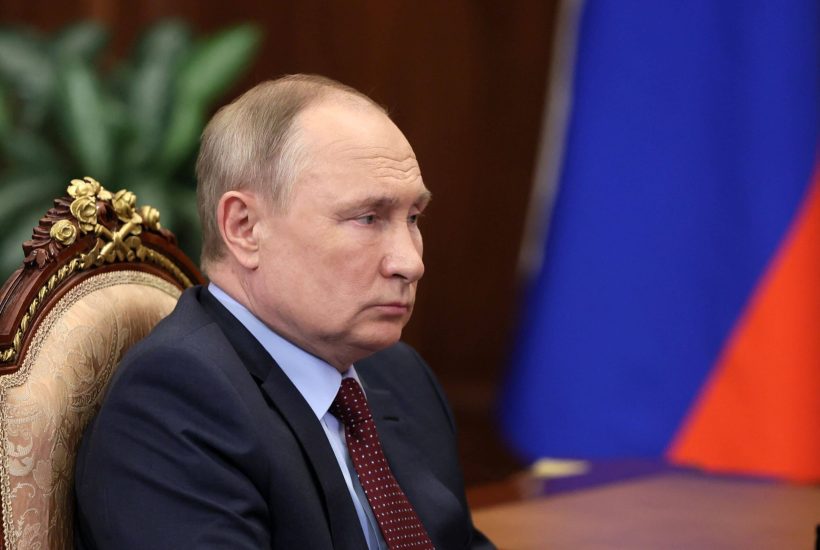

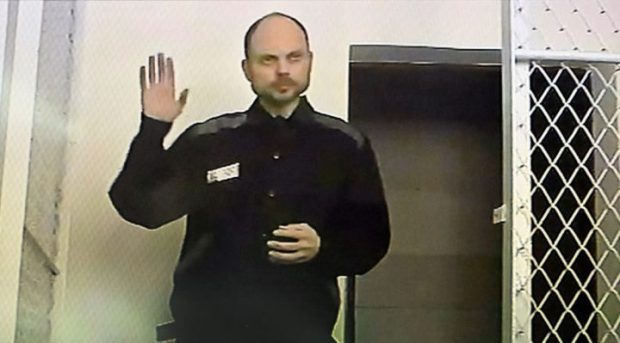
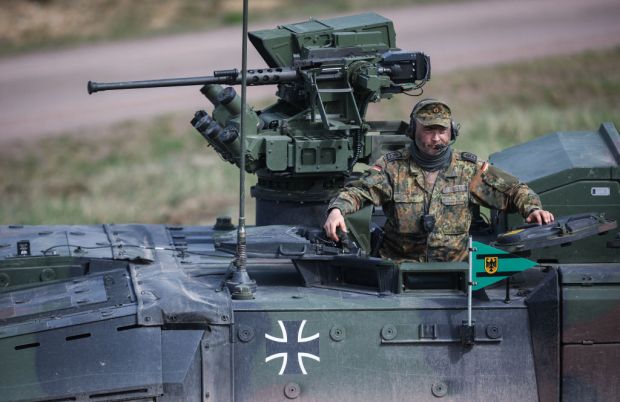












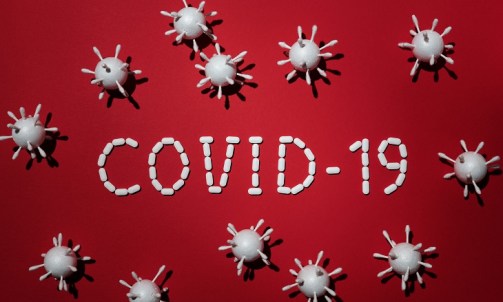
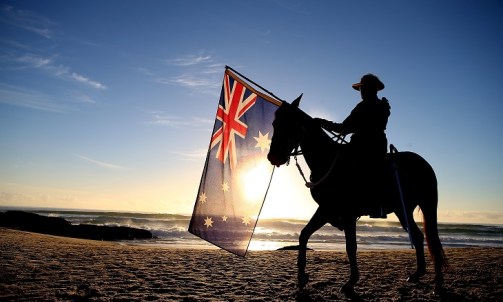
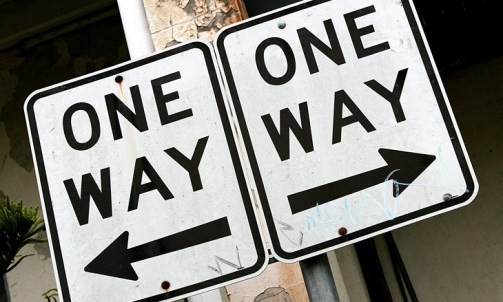
Comments
Don't miss out
Join the conversation with other Spectator Australia readers. Subscribe to leave a comment.
SUBSCRIBEAlready a subscriber? Log in